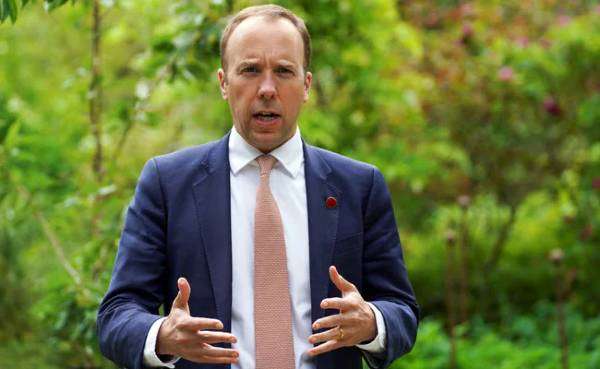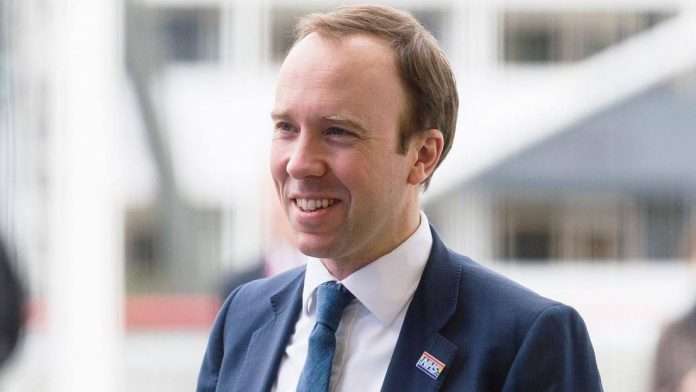Matt Hancock Wanted To Decide Who Lived Or Died If NHS Couldn’t Cope
The revelations from the ongoing Covid inquiry regarding Matt Hancock’s decision-making processes have sparked significant debate and raised ethical concerns. The belief that a political figure should have the final say in determining who should live and die during a healthcare crisis is highly controversial.
The COVID inquiry has shocked those who were deeply affected during the COVID crisis, but one shocking statement by the former boss of NHS England Lord Stevens has sent shock waves throughout Lincolnshire.
During the inquiry, it has been revealed that Matt Hancock, the man who believes he is hard as nails to join the SAS, wanted to play God with believes lives. With no medical training, he wanted to decide who would live and die if the NHS could not cope.
Lincolnshire was hit hard during the pandemic. People living in Grimsby, Spalding, Boston, Lincoln, Skegness, Scunthorpe, and many other areas lost loved ones to Covid. The thought of a politician deciding who should live or die could have resulted in many more deaths in the Lincolnshire region as well as the rest of the UK.
Fortunately, Sir Simon Stevens emphasized that this “horrible dilemma” never materialized, and Matt Hancock’s position did not come to fruition.
Stevens stated that he strongly disagreed with Hancock’s belief that he, rather than medical professionals or the public, should have the final say in prioritizing patients if hospitals were overwhelmed.
He firmly believed that such decisions should be made by the medical profession in consultation with patients, ensuring the best possible outcomes for everyone involved.
“The secretary of state for health and social care took the position that in this situation he – rather than, say, the medical profession or the public – should ultimately decide who should live and who should die.” – Sir Simon Stevens
Stevens also expressed his belief that an individual member of the Government should not have the authority to decide how care is provided, except in the most exceptional circumstances.
He emphasized the importance of relying on the expertise of the medical profession and involving patients in decision-making processes.
The ethical question raised by Matt Hancock’s stance resurfaced during discussions about the “rationing” of NHS services during the pandemic.
The issue of delayed discharges, where patients have to remain in hospitals despite being ready to leave due to a lack of support in the community, also came into focus.
In his witness statement, Matt Hancock’s predecessor, Jeremy Hunt, had advocated for clinical staff to be responsible for such decisions, highlighting a difference in approach between the two health secretaries.

Matt Hancock’s belief that delayed discharges were a significant factor in the need for lockdown measures was met with scepticism by Stevens.
While Hancock suggested that about 30% of beds were occupied by patients awaiting discharge, Stevens argued that the number could have been much higher.
In the worst-case scenario, there could have been up to 800,000 patients needing a bed, far exceeding the capacity that could have been freed up by resolving delayed discharges.
“Even if all of those 30,000 beds were freed up – for every one coronavirus patient who was then admitted, there would be another five who need that care and were not able to get it.” – Sir Simon Stevens
Stevens rejected the notion that the NHS and social care’s failure to address delayed discharges was the primary reason for the first lockdown. He emphasized the overwhelming number of coronavirus patients who required hospital beds and the need to take action to reduce the spread of the virus.
While Stevens refrained from criticizing Hancock during his testimony, other figures who appeared before the inquiry, such as Dominic Cummings and Helen MacNamara, expressed strong criticisms of the former health secretary.
Cummings accused Hancock of lying and suggested that he had contributed to the loss of lives during the pandemic. These conflicting views highlight the contentious nature of Hancock’s decision-making and the impact it had on public health and trust.
The inquiry also revealed frustrations expressed by former Prime Minister Boris Johnson regarding the NHS’s role in the first lockdown. Johnson pointed to “bed blocking” as a contributing factor, arguing that patients who did not strictly need acute sector beds were occupying them.
However, Stevens disputed this claim, emphasizing the immense pressure the NHS faced due to the high number of coronavirus patients requiring care.
Stevens also shed light on the decision-making processes during the early days of the pandemic. He noted that some senior ministers would occasionally avoid attending meetings chaired by Hancock and would delegate the responsibility to their junior ministers instead.
Stevens acknowledged that these meetings, known as Cobra meetings, brought together various departments and agencies, providing a cross-section of perspectives. However, he acknowledged that they were not always optimally effective due to their size and the attendance patterns of key individuals.
